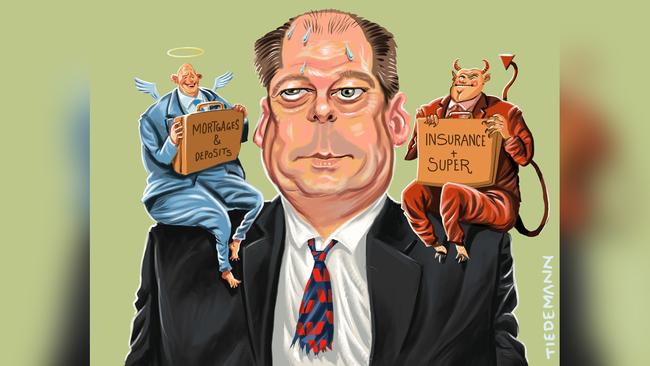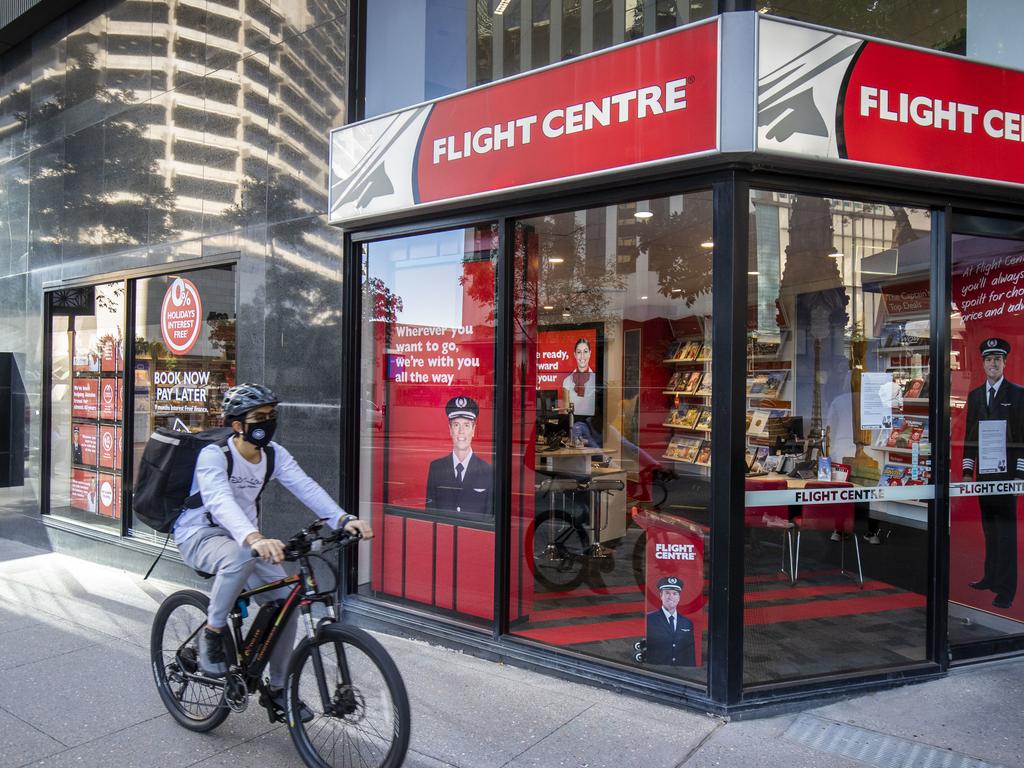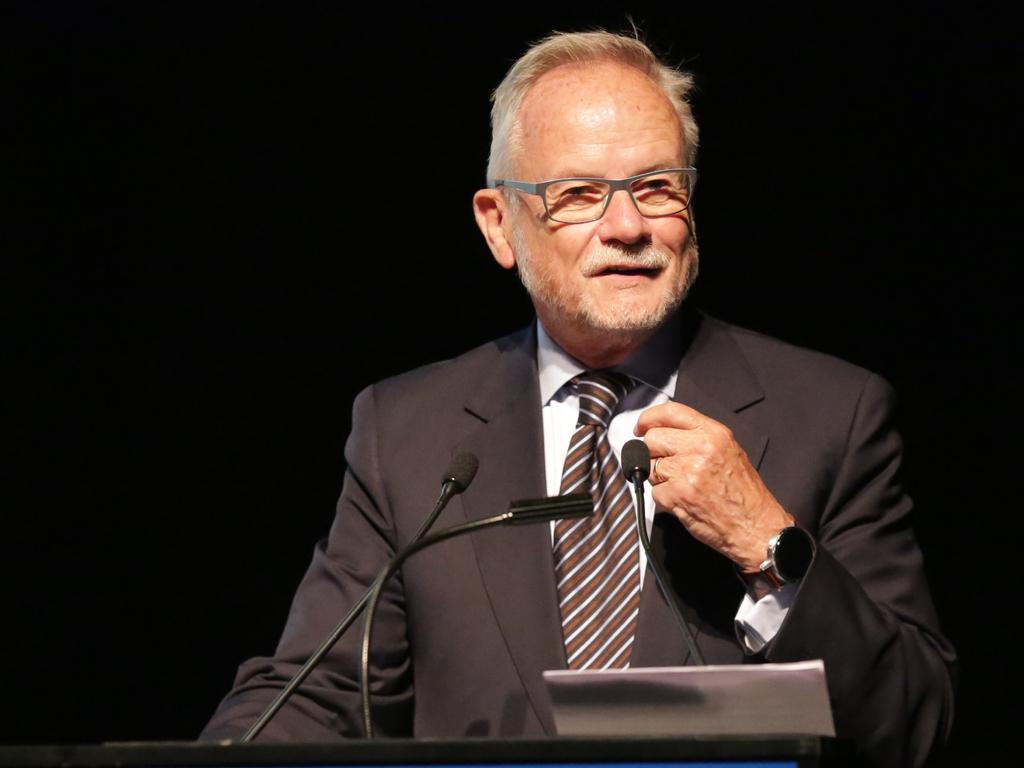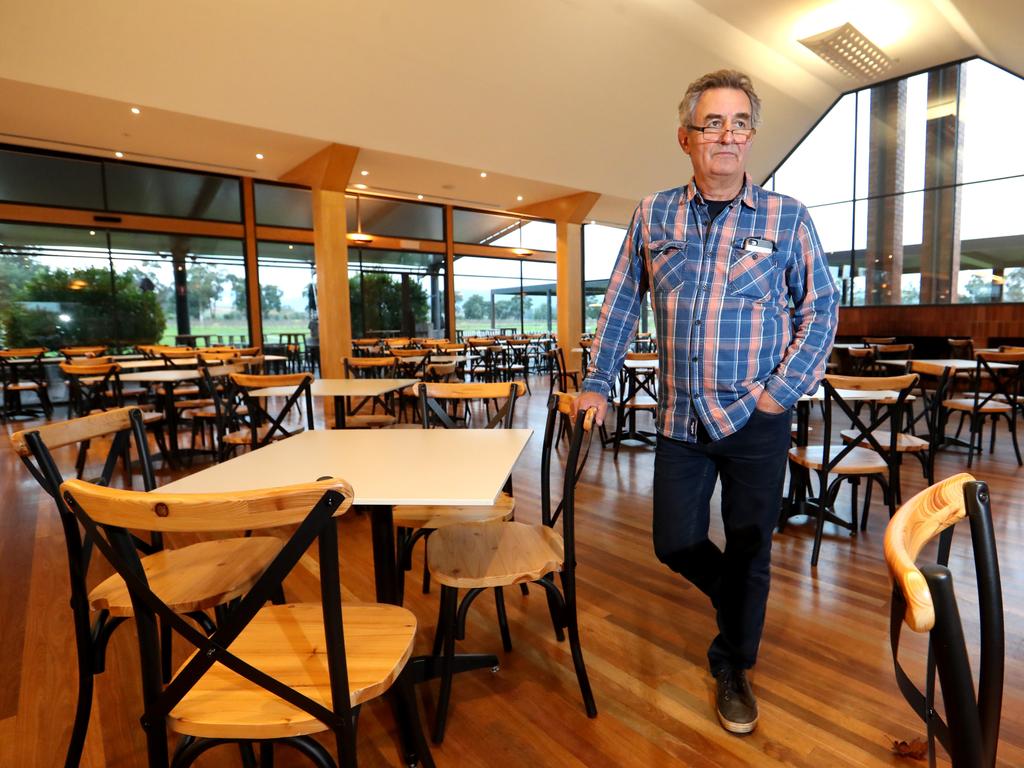
On July 1 the banks enter the first stage of open banking, which will give customers the right to take their bank details to rivals and hopefully in the process get a better deal.
Westpac’s Peter King figures the Australian Taxation Office could help by sending digital copies of tax returns to save the customer getting the physical copies.
It’s all part of the move to the revolution, with the aim of removing impediments to faster decisions.
The ATO is yet to reveal its attitude to what is an entirely reasonable request, given its personal data, but it should be noted digital records are available by accessing your myGov accounts.
King of course has plenty more impediments to remove as he sets the Westpac ship back on course.
On Monday, he joined ANZ in making the right call in deferring a decision on whether to pay a dividend, given the uncertainty over future earnings.
NAB, run by two veteran bankers in Phil Chronican and Ross McEwan, was surprisingly the only one to pay dividends, and worse, to do so on the same day as they put their hands out looking for $3.5bn in cash to help keep the bank afloat.
Banks are highly leveraged vehicles yet their privileged position of being a government-mandated oligopoly has somehow taught some investors to believe their earnings are a one-way street delivering a steady stream of dividends.
This year, as three of the big four collectively dropped $6.2bn in profits to $8.3bn, the message was rammed home with a 3 per cent fall in total income to $39.9bn.
While bank dividends might not pay the rent there is every reason to believe the banks are as safe as houses, as the saying goes, with tier one capital levels of 10.8 per cent, against 6 per cent before the GFC, and a liquidity coverage ratio of 135 per cent, against 125 per cent in 2007.
The bank profits were for the six months to the end of March, which of course was only the very start of the tsunami, so it remains to be seen what the full impact will be.
Westpac’s King said the bank had started checking in with customers who had sought a deferral in mortgage payments, some of whom had asked before now if their job was safe.
He figures by July the bank will have a feel for how the loan book looks but the real test will come at the end of September, when the government turns off the tap on its JobKeeper and other subsidies.
Home mortgages are 62 per cent of the Westpac loan book. The bank’s profits fell 70 per cent to $993m, buoyed again by stellar Treasury earners, with the bank’s traders making out like bandits in the volatile markets, making it the second-biggest earner last half.
The consumer division earned $1.4bn in income, followed by business at $604m and institutional at $175m.
On KPMG figures Westpac, NAB and ANZ together took $3.4bn in COVID-19 impairments and $18.2bn in credit provisions, which compares with 2009 when loan losses stood at $12.7bn.
That highlights the impact of the crisis.
The banks are also still getting their house in order from the royal commission, with some 51 per cent of all investment on risk and compliance, up from 40 per cent a year ago.
Westpac’s King has rehired former retail boss Jason Yetton to what you could call the bad bank, or in Westpac language “specialist businesses”, which includes insurance, wealth platforms and superannuation. Some of these assets were already on the “for sale” lists and Yetton’s brief is to maximise earnings, dressing them up for probable sale.
This in turn will free the “good” bank divisions to concentrate on their books in what King calls a “simplify and focus” strategy.
These words are remarkably similar to the ones you will get from all four big bank bosses, which is why they are called the big bank oligopoly.
The prize goes to the lemming which executes the best and right now that is CBA. Westpac ran into the Austrac express train, which highlighted a dodgy risk culture in the bank, swamping some good signs in areas like cutting internal red tape, reducing customer documents by 50 per cent and processing time by 25 per cent.
King has $900m in provisions to pay for the Austrac settlement when it comes, but the main game is now to manage the economic fallout from the virus.
Virgin’s future
Virgin administrator Vaughan Strawbridge will borrow around $200m to help keep operations afloat pending a decision on the sale of the airline.
The loan indicates Virgin was not quite as liquid as imagined when the administrator was called in on April 21.
It is understood free cash stood at just $30m when Strawbridge was called in.
That makes you wonder why the airline’s former board waited as long as it did before calling in the administrators.
It was of course waiting — thankfully in vain — for the federal government to come to the rescue.
A conga line of bidders is lining up to at least look at the airline on paper and it remains to be seen who, if any, will emerge with the prize come June, when negotiations really begin.
Deloitte’s Strawbridge is likely to seek court approval to extend his term in the chair beyond the indicative time of August 22.
Bids for the airline are due on May 15 and consortiums are being filled to narrow bidders to around three when the final bids are called.
One consortium includes Brookfield, Macquarie Bank and Wesfarmers, with another forming around BGH, with the possible inclusion of Lindsay Fox and the Victorian government.
The latter is being sold as a local consortium, which will mean it won’t have to run the FIRB gauntlet to win approval.
The airline generates annual revenues of $5.5bn, which is its big selling point, because actual assets on its books are largely held against debt.
In the present environment it is clearly a loss-maker so no one is buying the asset for profitability, and against $7.8bn in debt already this is already a highly leveraged asset.
The brand is rented from Richard Branson and aircraft leases, terminal lounges and airport slots all have liabilities attached.
While the airline is now loss-making the turnaround comes with federal government backing, because while financial support is not in the bag it has made clear it wants a viable competitor to Qantas.








The digital revolution is one trend to emerge strongly during the COVID-19 lockdown, with cash unwanted and banks like Westpac issuing cards to passbook holders.